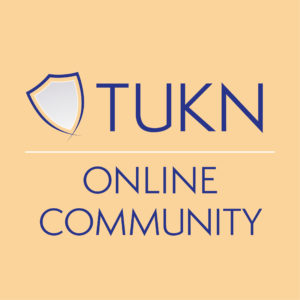Talking to my Dad (Brian Butler) recently we were discussing the origins and importance of keeping Systematic Kinesiology pure, yet at the same time, continually moving forward as we lead the way with SK.
The origins of Systematic Kinesiology
Systematic Kinesiology (SK) is Applied Kinesiology. However, when my Father (with the founders blessing) brought kinesiology over to the UK in 1976, they requested an alternative name to Applied Kinesiology as this was the term used in the USA. Kinesiology was only allowed to be taught and practised by doctors and chiropractors as they believed only medical professionals would be able to understand the concepts and treatments – not so.
Kinesiology was the best-kept healthcare secret from lay people and other practitioners.
My father chose Systematic Kinesiology (SK) as the name, as we are addressing the body in a systematic way. He practised from home for a couple of years before setting up a private clinic in 1978. Just several years later in 1985, he founded The Academy for Systematic Kinesiology (TASK) – going on to teach and qualify thousands of students.
A Charity was set up to spread the word of the powerful benefits of Kinesiology
In 1988, to help spread the word of Systematic Kinesiology, my Dad founded the charity ‘Association of Systematic Kinesiology’ (ASK). ASK served as an umbrella association for qualified Kinesiology practitioners to become members – thus having a code of ethics to abide by. ASK also provided the public with a list of fully trained and reputable Kinesiologists to contact if needed.
I took the reins of TASK
When my father retired, I had the pleasure of taking over the reins. I have successfully run TASK for 18 years now. My father entrusted the charity ‘ASK’ to a board of trustees that he had trained and qualified through TASK to keep Kinesiology pure and to continue to spread the word.
Why keeping Kinesiology training and practice pure is important

I feel very strongly about keeping Systematic Kinesiology pure by:
- Using the original reproducible Muscle Testing, which my father learned from the founders, and not reinventing the wheel with other testing methods
- Not teaching or recommending self-testing.
- Promoting the Four Realms of Health
- Keeping it simple
The Four Realms of Health – MCPE
Mental Health (emotional health)
Chemical Health
Physical Health
Energetic Health (life force)
Our approach embraces all aspects of a person and brings them into balance. This includes acknowledging a higher power, keeping grounded and treating clients as a whole, therefore, not just concentrating on the symptoms being experienced.
Moving forward
Kinesiology muscle testing and the core techniques for balanced health remain the same (digestive, immune, intestinal, structural and endocrine/hormonal). That said, updates and additions are part of the movement and expansion of Kinesiology. Each realm grows with as new discoveries and understandings come to light. These are incorporated within our classes and updated notes continually.
TASK-UK Network Online Community

This has been a fantastic leap forward for students, offering constant support, search for conditions and ailments, Q &A recordings, Kinesiology training videos, webinars on many health subjects and videos of muscle tests.
We would like to thank all students that have written with their appreciation and thanks for this network of continual information & support.
TASK now looks forward to the next 30 years of keeping Kinesiology pure, continually moving forward, acknowledging the origins and Brian H. Butler for pioneering Kinesiology in the UK/Europe and continuing to lead the way.
*Updated on 29 May 2019
TASK Online Community is now known as TASK-UK Network Online (TUKNOC) Community. Access to the TUKNOC is gained via TASK-UK Network a membership site for Systematic Kinesiologists.
Find out more about TASK-UK Network
For all our Training Programmes visit our website